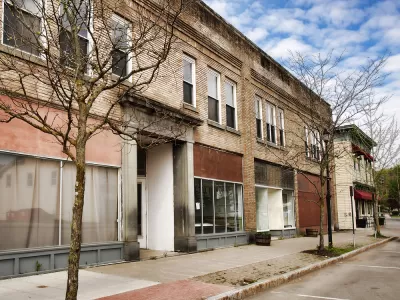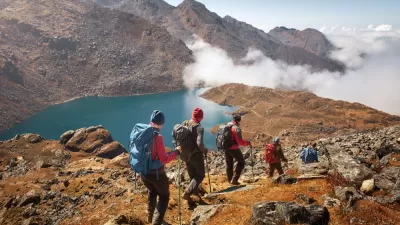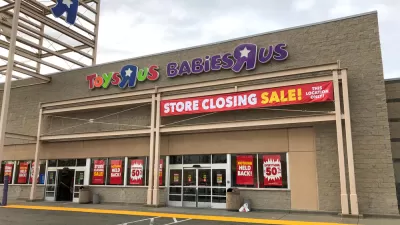While warehousing and ecommerce jobs are steadily increasing in most parts of the country, rural areas are particularly hard hit by the struggles of the retail sector.

Andrew Flowers shares news of recent research by Indeed, a job posting website, that decribes the negative effects of the struggling retail market as particularly damaging in rural areas.
As far as retail jobs are concerned, the rural/urban split is stark. Retail job gains have lagged overall job growth in urban counties of large metropolitan areas, but such jobs are actually declining in rural counties and small metros. Retail jobs fell 1.1% year-over-year in rural America in the quarter ending in June 2017–even as these jobs were still growing nationwide.
On the other side of the retail coin, ecommerce and warehousing jobs are growing in most parts of the country. "What’s more, the boom in warehousing jobs is remarkably consistent in both rural and urban areas," according to Flowers.
Indeed isn't the only organization sounding alarms about retail employment. Flowers explains:
Similar research by the Federal Reserve Bank of New York confirms this picture. It showed that, between 2012 and 2016, department store jobs, a subset of all retail jobs, dropped in about 75% of counties studied. Meanwhile, a majority of those counties saw growth in ecommerce, that is, nonstore jobs. Combining department store and nonstore retailers, net jobs fell in about 80 percent of counties.
FULL STORY: Retail Jobs Decline Hits Rural America Hardest

Study: Maui’s Plan to Convert Vacation Rentals to Long-Term Housing Could Cause Nearly $1 Billion Economic Loss
The plan would reduce visitor accommodation by 25,% resulting in 1,900 jobs lost.

North Texas Transit Leaders Tout Benefits of TOD for Growing Region
At a summit focused on transit-oriented development, policymakers discussed how North Texas’ expanded light rail system can serve as a tool for economic growth.

Why Should We Subsidize Public Transportation?
Many public transit agencies face financial stress due to rising costs, declining fare revenue, and declining subsidies. Transit advocates must provide a strong business case for increasing public transit funding.

How to Make US Trains Faster
Changes to boarding platforms and a switch to electric trains could improve U.S. passenger rail service without the added cost of high-speed rail.

Columbia’s Revitalized ‘Loop’ Is a Hub for Local Entrepreneurs
A focus on small businesses is helping a commercial corridor in Columbia, Missouri thrive.

Invasive Insect Threatens Minnesota’s Ash Forests
The Emerald Ash Borer is a rapidly spreading invasive pest threatening Minnesota’s ash trees, and homeowners are encouraged to plant diverse replacement species, avoid moving ash firewood, and monitor for signs of infestation.
Urban Design for Planners 1: Software Tools
This six-course series explores essential urban design concepts using open source software and equips planners with the tools they need to participate fully in the urban design process.
Planning for Universal Design
Learn the tools for implementing Universal Design in planning regulations.
Ascent Environmental
Borough of Carlisle
Institute for Housing and Urban Development Studies (IHS)
City of Grandview
Harvard GSD Executive Education
Toledo-Lucas County Plan Commissions
Salt Lake City
NYU Wagner Graduate School of Public Service





























